17 AFRICAN COUNTRIES BECOME INDEPENDENT
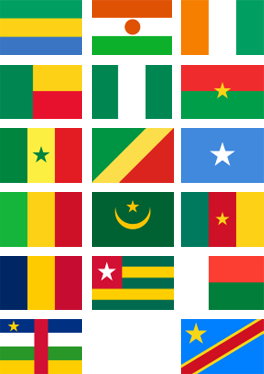 |
The Suns of Independence is a 1968 novel written by Ahmadou Kourouma (Ivory Coast) in reaction to the upheavals experienced by African political regimes emerging from decolonization. 'Independence enveloped Africa like a swarm of locusts, leaving nothing in most pockets but national identity and state party cards. Others got fat.' In 1960, the 17 African states in question do not share the same path to independence. On the political and international scene, and against the backdrop of national movements, the personalities of African leaders, intellectuals and union organizers play an important role in the gradual emancipation of independent African states and in the emergence of African cultures. And while some new states are tempted by socialism, pan-Africanism and the non-aligned movement are the era's predominant ideologies, driving the mass movement that is decolonization. Nevertheless, many new independent states, such as those of French West Africa, maintain strong economic and strategic ties with their former colonizer. So while 1960 is their official year of political independence, 'independence day' does not mean a complete break. Far from it. |
1960 is a record year for independence.Between 1 January and 28 November 1960, no fewer than 18 countries declare it: Cyprus and 17 African countries.
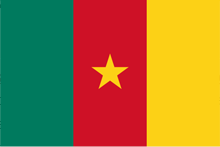 |
Republic of Cameroon - République du CamerounIndependence 1 January 1960 History: a Central African country whose name is derived from the Portuguese Rio dos Camarões, the 'river of shrimps'... |
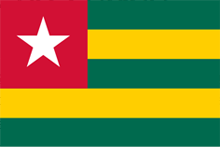 |
République togolaiseIndependence 27 April 1960 History: Togo takes its name from Togodo, which means 'village on the opposite bank'. It becomes a German protectorate... |
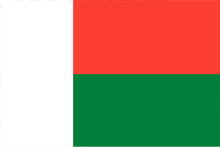 |
République de MadagascarIndependence 26 June 1960 History: the 'great island' of the Indian Ocean still holds many mysteries, despite the numerous 'oral traditions'... |
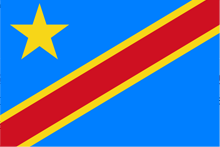 |
République Démocratique du CongoIndependence 30 June 1960 History: the Democratic Republic of Congo (DRC) is Africa's third largest country – 60% of which is covered by equatorial forest... |
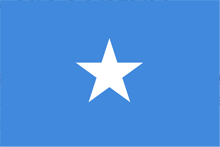 |
Republic of SomaliaIndependence 1 July 1960 History: the population of Somalia, a crossroads and area of dynamic trade in the Horn of Africa... |
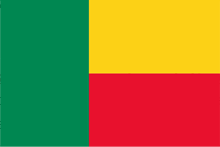 |
République du BéninIndependence 1 August 1960 History: today's Benin should not be confused with the Benin of ancient African history... |
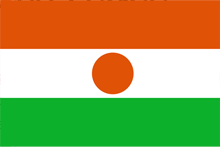 |
République du NigerIndependence 3 August 1960 History: Niger is in the Sahel. The country owes its name to the river that runs through it. In Europe the country is popularized by the writings.. |
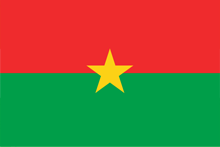 |
République du Burkina FasoIndependence 5 August 1960 History: if any country can be called a miraculous survivor of colonization, it's Upper Volta (the colonial name of Burkina Faso)-... |
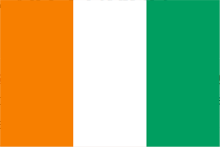 |
République de Côte-d’IvoireIndependence 7 August 1960 History: in 1960, the independent Republic of Ivory Coast (RCI) keeps the name that had been attributed to it in the 15th century by Portuguese explorers... |
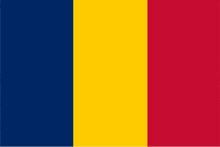 |
République du TchadIndependence 11 August 1960 History: Chad is a vast country in the heart of the African continent. It contains an immense desert region... |
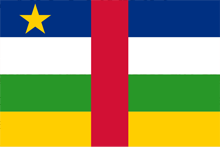 |
République centrafricaineIndependence 13 August 1960 History: this is one of the rare colonial territories whose name, invented in the independence era of pan-African aspirations... |
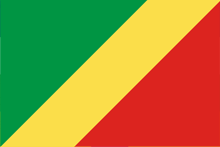 |
République du Congo (Brazzaville)Independence 15 August 1960 History: this Central African country, partially covered by equatorial forest, has probably long been populated... |
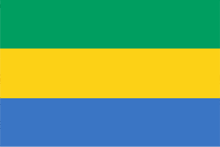 |
République gabonaiseIndependence 17 August 1960 History: Gabon's location has been both a blessing and a curse. Its dense forest – a copious jungle – is home to substantial renewable forest resources... |
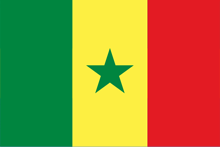 |
République du SénégalIndependence 20 August 1960 - celebrated 4 April History: over the centuries, Senegal is part of the great socio-political entities such as the Kingdom of Ghana... |
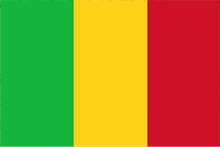 |
République du MaliIndependence 22 September 1960 History: the territory of today's Republic of Mali was home to great West African empires and several kingdoms... |
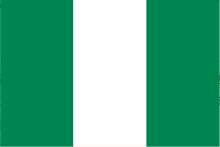 |
Federal Republic of NigeriaIndependence 1 October 1960 History: the region in which this West African country is situated – the continent's most populous – was implicated in the slave trade... |
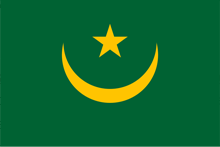 |
République islamique de MauritanieIndependence 28 November 1960 History: Mauritania is a West African and Saharan country home to Arab-Berber and black populations. It's also a country of emigration... |


